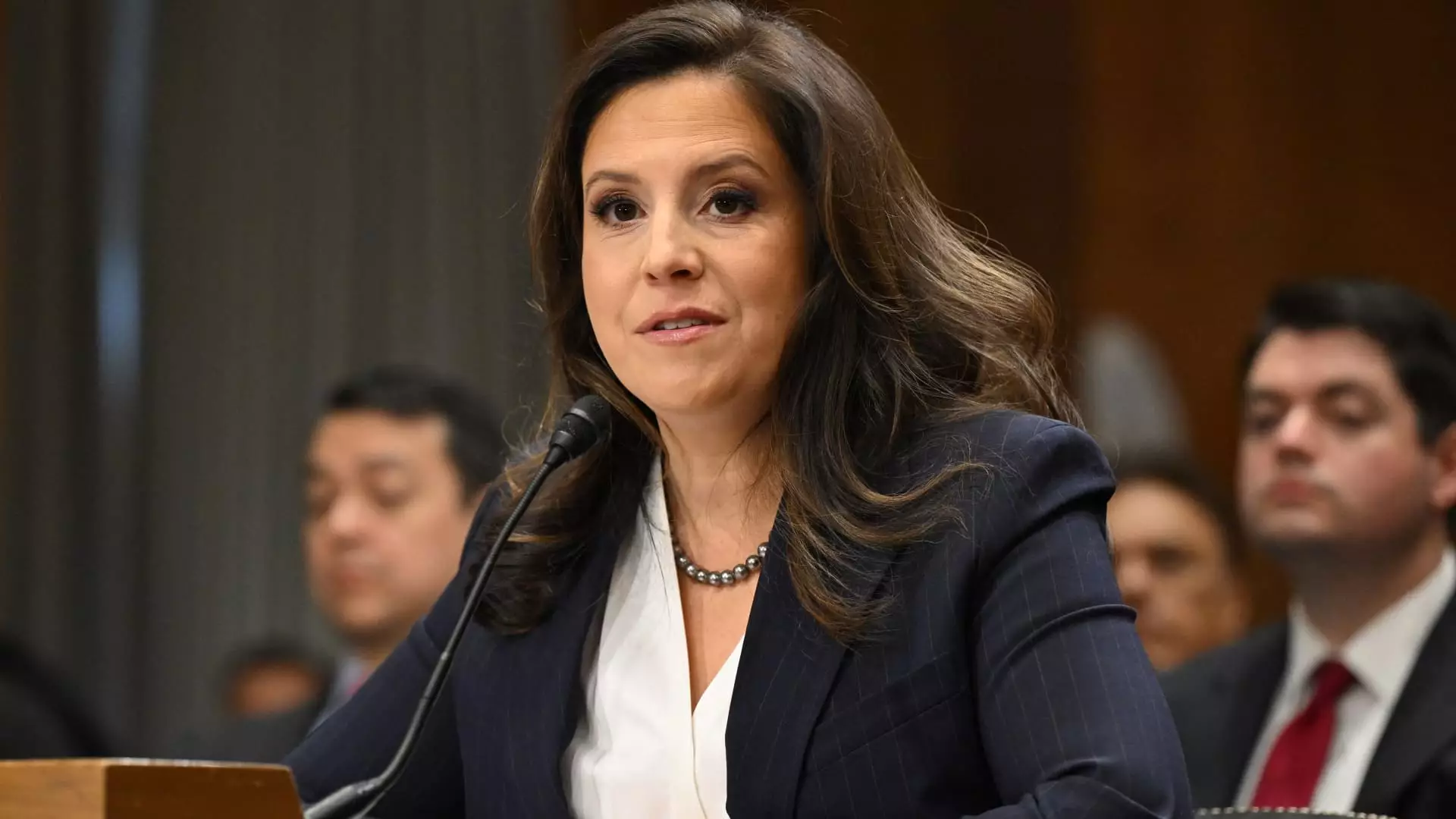In a move that sent ripples through the political sphere, President Donald Trump retracted his nomination of Rep. Elise Stefanik as U.S. ambassador to the United Nations. His decision was ostensibly driven by the precarious balance of power within the House of Representatives, where Republicans find themselves clinging to a slim majority. Trump’s justifications, aired through a social media blast, underscored the importance of party cohesion in achieving policy goals—a typical move for a leader who thrives on loyalty and support. Yet, beneath this veneer lies a deeper strategy that reflects the ideological battleground of contemporary American politics.
Trump’s insistence that every Republican seat is essential goes beyond mere rhetoric; it signals his acute awareness of the fragility of his administration’s standing in Congress. The party is at a crossroads, teetering between unity and division, and Stefanik’s robust presence in the House is seen as a stabilizing factor. Instead of allowing her to potentially vacate her influential role for a foreign diplomatic post, Trump opted to keep a fierce ally in the domestic arena. This decision cleverly utilizes political pragmatism, but it also raises questions about ambition and talent being sacrificed at the altar of strategic protectionism.
The Political Game: Loyalty Over Ambition
Trump’s withdrawal reflects a fundamental truth about his leadership style: loyalty often trumps individual ambition within this administration. By asking Stefanik to remain in Congress, Trump solidifies his inner circle while simultaneously signaling to other Republicans that loyalty to the agenda is paramount—even at the cost of personal advancement. His social media communication framed this decision as a protective measure for the “America First Agenda,” an ideological banner that serves not just as political policy but as a brand for those in his camp.
The juxtaposition of Elise’s potential as a UN ambassador against her role in the House raises a significant point of contention about the values that are prioritized within the GOP. Should the party favor preserving a critical seat over empowering skilled individuals ready for international representation? The decision leans toward a conservative mentality that favors close-knit party dynamics over opening avenues for diverse political experiences.
Implications for Future Deals and Negotiations
Trump’s choice not to announce a replacement for Stefanik suggests a calculated pause in the UN ambassadorship conversation, a strategic withholding that could allow him to gauge reactions and implications more thoroughly. By keeping Stefanik where she can operate effectively within the party, he aims to leverage her skills in negotiations that are essential to his administration’s agenda. However, this tactic comes with risks.
As foreign relations evolve and require experienced diplomats who understand the nuances of global politics, sidelining talent in favor of party loyalty may hinder the United States’ standing on the world stage. While Trump reassures that “others can do a good job” at the UN, it’s essential to question whether he can find someone with the same level of efficacy and commitment to domestic strategy, or if he is merely rotating pieces on a chessboard without considering the long-game implications.
Trump’s dramatic withdrawal of Elise Stefanik’s nomination is emblematic of a broader conflict within the GOP and raises poignant questions about values, ambition, and strategy in an ever-evolving political landscape. The underpinning of loyalty over professional growth may serve immediate goals but could potentially expose weaknesses in securing lasting achievements for the party and the country alike.

